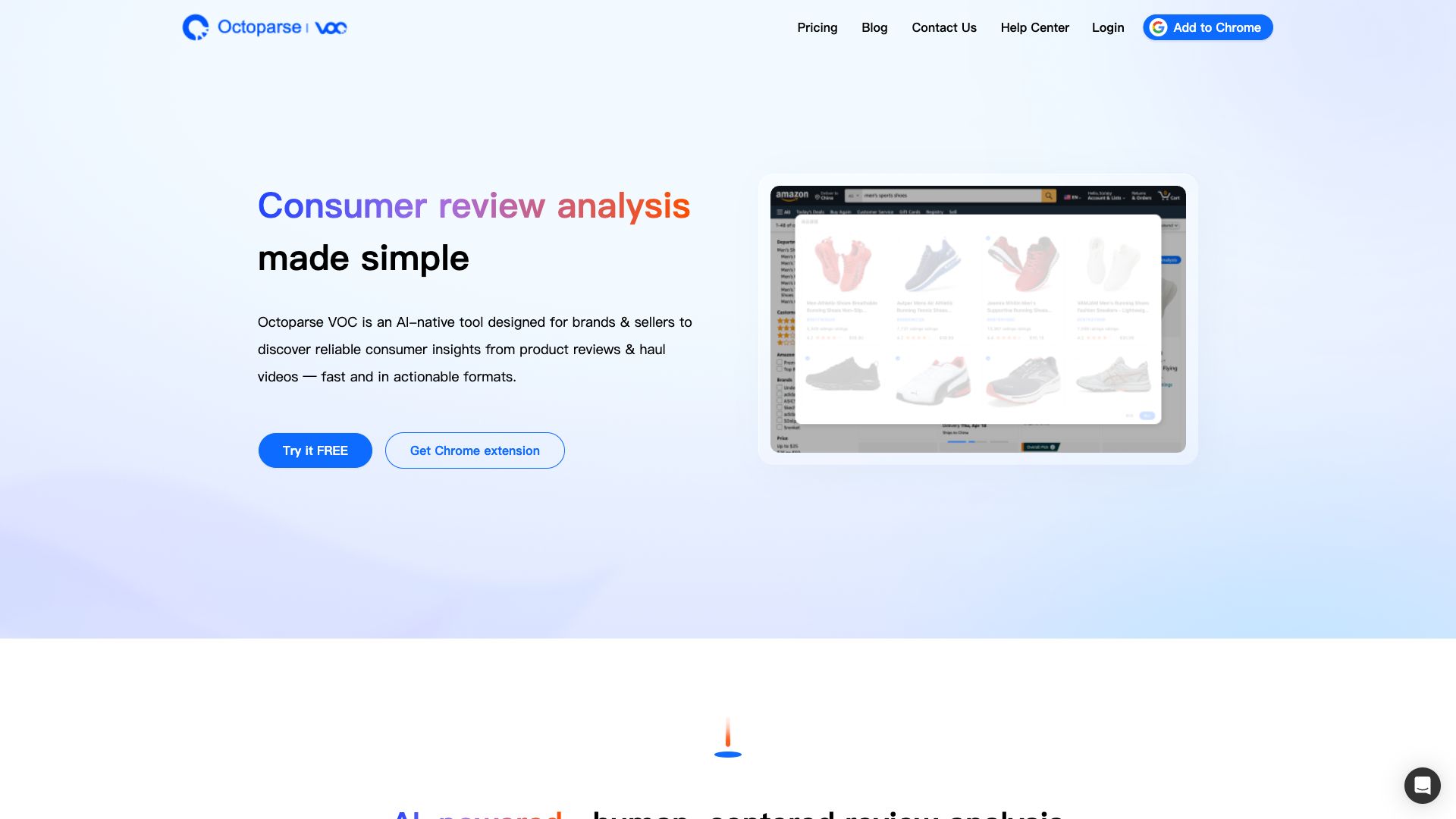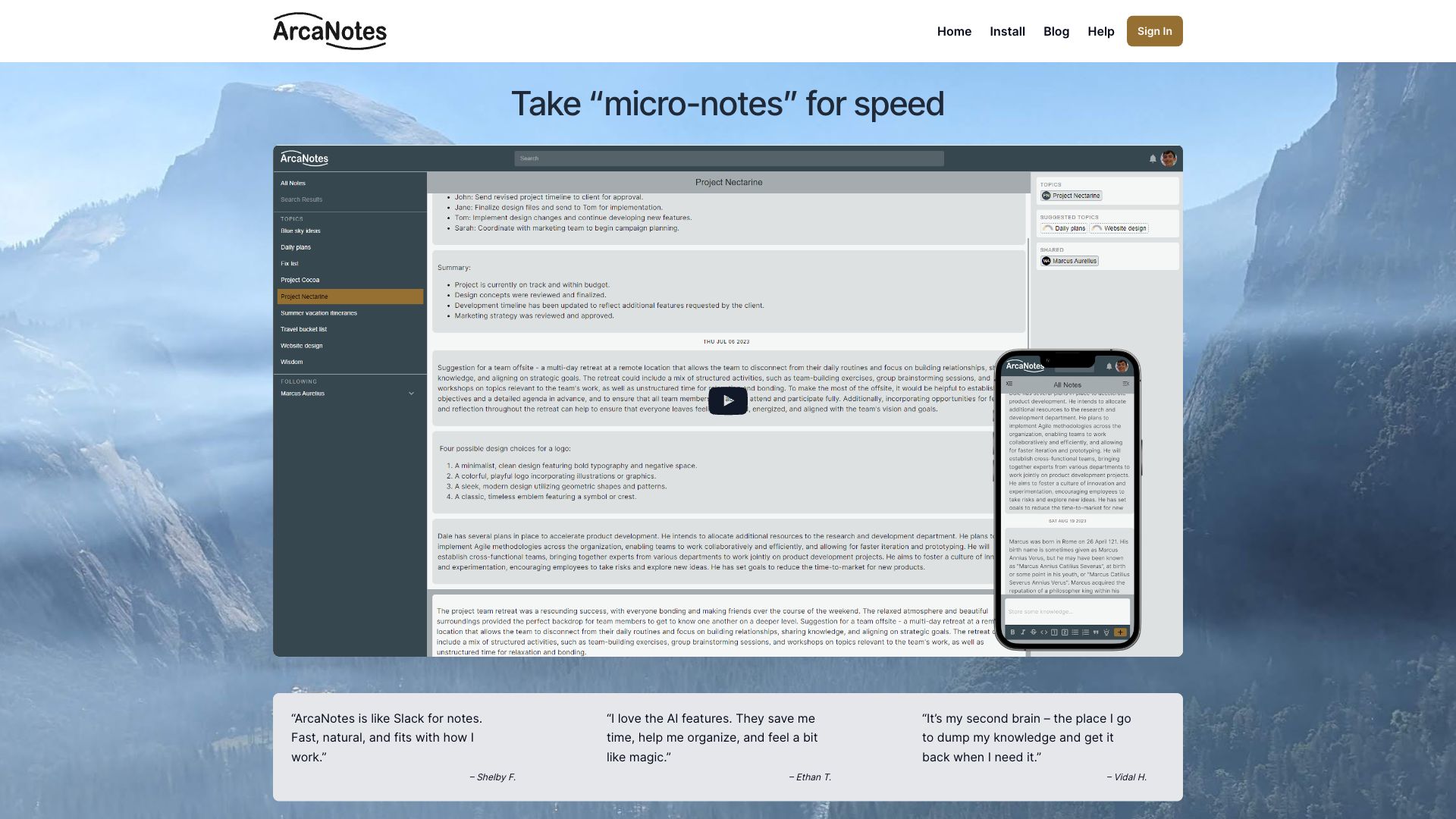Awesome Web Scraping Tools in 2024
Discover the awesome 2 AI tools for 2024 By Candytools
Octoparse VOC provides the AI-based professional voice of customer analysis and product review research for your e-commerce business.
Arcane Notes utilizes the power of AI to revolutionize your learning experience. Effortlessly create, manage, and share your notes and flashcards for efficient, engaging study sessions.
More AI Tools Categories
What is Web Scraping?
Web scraping is the automated process of extracting data from websites. It's like copying and pasting, but on a much larger and automated scale. Instead of manually going through web pages, you use software to collect information and store it in a structured format, like a spreadsheet or a database.
Here's how it works:
-
Target Identification: You identify the website(s) you want to scrape and the specific data you need (e.g., product prices, news articles, contact details).
-
Tool Selection: You choose a web scraping tool or library. There are various options, ranging from simple browser extensions to powerful programming libraries like Python's Beautiful Soup and Scrapy.
-
Code/Rule Creation: You write code or configure rules to tell the tool how to navigate the website and extract the desired data. This usually involves:
- HTML Parsing: Understanding the website's structure (HTML) to locate the data elements.
- Selector Use: Using CSS selectors or XPath expressions to pinpoint specific data elements within the HTML.
- Data Extraction: Pulling out the text, images, links, or other data from those elements.
-
Data Storage: The extracted data is stored in a structured format, such as a CSV file, a spreadsheet, or a database.
Why Use Web Scraping?
- Market Research: Gathering pricing data, competitor information, or customer reviews.
- Lead Generation: Extracting contact details from websites to build sales leads.
- Content Aggregation: Collecting news articles, blog posts, or social media content.
- Financial Analysis: Extracting financial data for investment research or stock market analysis.
- Academic Research: Gathering data for social science studies or historical analysis.
Ethical and Legal Considerations:
- Terms of Service: Always check a website's terms of service and robots.txt file before scraping. Some websites prohibit scraping, and violating these terms can have legal consequences.
- Rate Limiting: Avoid overloading a website with too many requests. Respect their server resources by implementing rate limiting (pauses between requests) in your scraper.
- Data Privacy: Be mindful of data privacy laws (like GDPR) if you're scraping personal information. Ensure you have lawful grounds for processing the data.
Tools for Web Scraping:
- ParseHub: User-friendly visual web scraper with a point-and-click interface.
- Octoparse: Another visual scraping tool with cloud-based data extraction.
- Import.io: Offers web scraping APIs and data extraction services.
- Python Libraries (Beautiful Soup, Scrapy): Powerful and flexible libraries for advanced scraping projects.
In summary, web scraping is a valuable technique for extracting data from websites, but it's crucial to use it ethically and legally, respecting the website's rules and limitations.

